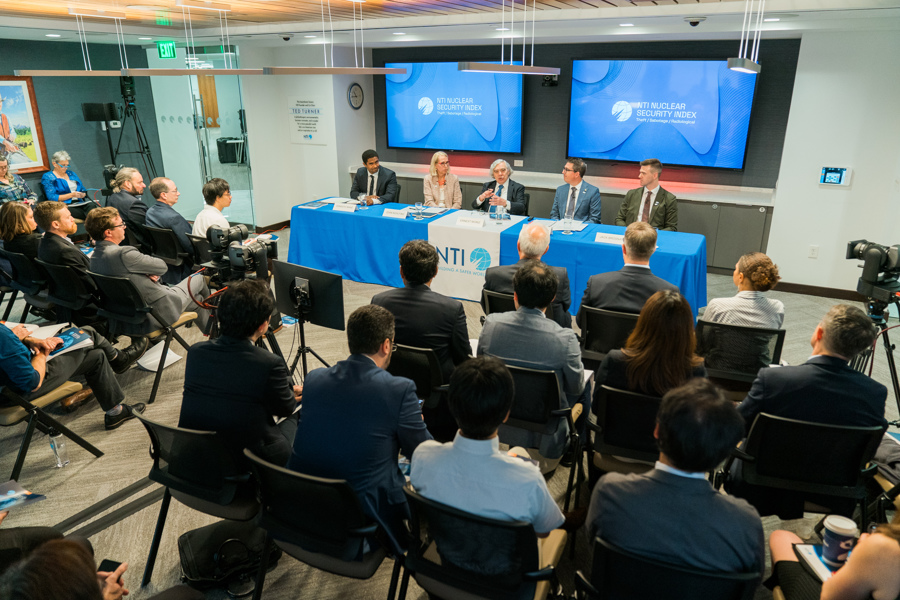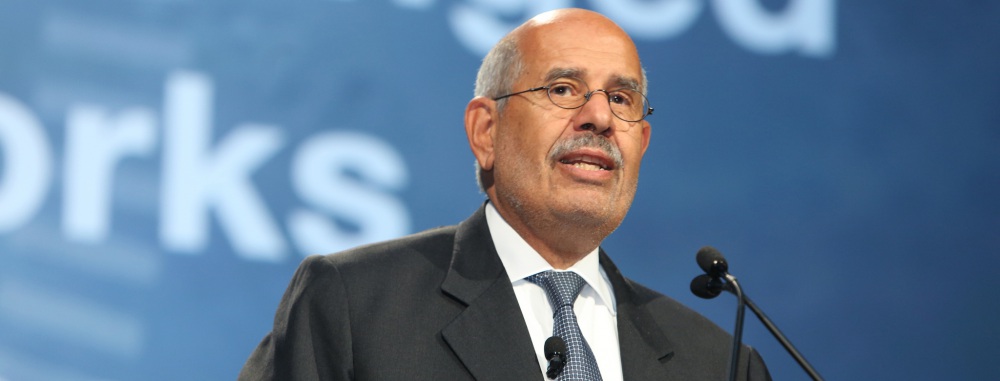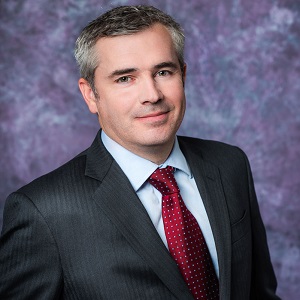
New Approach to Nuclear Fuel Cycle: How to Manage our “Nuclear Present”
New Report Challenges Global Community to Confront Key Security Issues Created by Existing Gaps
The Nuclear Threat Initiative (NTI) and the Center for Strategic and International Studies (CSIS) Proliferation Prevention Program released a new report urging a sustainable and secure nuclear supply architecture. This is the first comprehensive approach to managing nuclear energy that would address "future Irans." According to the report's authors, the international community can no longer afford to ignore gaps in the system that allow the spread of sensitive fuel cycle technologies and enable states to produce weapons-usable nuclear material.
This new report offers a “best practices” approach that aims to protect against nuclear proliferation and nuclear terrorism while also protecting the long-term viability of nuclear energy to provide low-carbon electricity.
“Today, it is clear that sensitive information related to the nuclear fuel cycle cannot always be protected or contained,” writes former Senator Sam Nunn in the report’s Foreword. “The promise of our nuclear future depends on how we manage our nuclear present.”
Nunn, who serves as co-chairman and CEO of NTI and chairman of the CSIS Board of Trustees, noted that the report’s approach “builds on industry trends in corporate responsibility and industry globalization, while offering a path to a more secure future.”
Experts have long argued that the risk of misuse of sensitive fuel cycle facilities can be reduced by removing these facilities from national control. However, the new report makes the case that simply changing control and/or ownership structures is not enough to prevent, deter or better detect proliferation. Instead, states should agree to common objectives for the production, use and disposal of fissile material and nuclear waste.
The authors—Kelsey Hartigan, Corey Hinderstein, Andrew Newman, and Sharon Squassoni—argue that “The continued buildup of fissile material stockpiles, the spread of uranium enrichment and spent fuel reprocessing technology, and the lack of will or capacity to dispose of spent nuclear fuel all pose long-term risks for proliferation and nuclear security.” The debate over what Iran could legally do as a member in good standing of the Nuclear Nonproliferation Treaty illustrates the risks of continuing down this path.
To address these risks, the report advocates applying six “best practices” to nuclear fuel capabilities:
- Equal access and shared benefits, with features like diversified partnerships for ownership and operation of uranium enrichment and spent fuel reprocessing;
- Shared costs and burdens, ensuring that current technology holders accept the same restrictions as new entrants, ranging from applying IAEA safeguards to establishing an independent regulator;
- Early detection of noncompliance, improving consistency on how sensitive technology and processes are controlled;
- Minimizing weapons-usable material, with no new production of highly enriched uranium and no plutonium separation without a path for consumption;
- Market-based expansion, ensuring that new capacity meet a market test and that cooperative approaches meet market demands for waste management; and
- Incentives and consequences so that governments and industry benefit more from adhering to commitments than from breaking them.
Applying these best practices will result in a more equitable distribution of rights and responsibilities among nuclear energy suppliers and consumers. The report contains a detailed Action Plan that can be found here.
About the Project
The New Approaches to the Nuclear Fuel Cycle project was a two-year collaboration between NTI and CSIS that drew on U.S. and foreign expertise in the nuclear industry, government, and the nongovernmental organization community. Copies of the report and author biographies are available at www.nti.org/fuelcycle or https://csis.org/publication/new-approach-nuclear-fuel-cycle.
About the Nuclear Threat Initiative
NTI is a non-profit, non-partisan organization working to reduce the global threats from nuclear, biological and chemical weapons. NTI is co-chaired by Sam Nunn and Ted Turner and governed by an international board of directors. The organization's activities are directed by Nunn, who also serves as chief executive officer, and Joan Rohlfing, who serves as president. Learn more at www.nti.org.
About the Center for Strategic and International Studies
Founded at the height of the Cold War by David M. Abshire and Admiral Arleigh Burke, CSIS was dedicated to finding ways to sustain American prominence and prosperity as a force for good in the world. Since 1962, CSIS has become one of the world’s preeminent international institutions focused on defense and security; regional stability; and transnational challenges ranging from energy and climate to global health and economic integration. The CSIS Proliferation Prevention Program combines independent analysis and policy solutions to help develop new tools for slowing proliferation, identify next steps in arms control, and illuminate the path toward a sustainable and safe nuclear future.
Former U.S. senator Sam Nunn has chaired the CSIS Board of Trustees since 1999. Former deputy secretary of defense John J. Hamre became the Center’s president and chief executive officer in 2000.
Stay Informed
Sign up for our newsletter to get the latest on nuclear and biological threats.

Nuclear Security Conditions are Regressing in Dozens of Countries, according to 2023 NTI Nuclear Security Index
“The bottom line is that the countries and areas with the greatest responsibility for protecting the world from a catastrophic act of nuclear terrorism are derelict in their duty,” the 2023 NTI Index reports.

Statement from Nobel Laureate and former IAEA Director General Mohamed ElBaradei on the IAEA Low Enriched Uranium Bank
Read Nobel Laureate and former IAEA Director General Mohamed ElBaradei's statement on the inauguration of the IAEA LEU bank facility in Kazakhstan.

Challenges to Peace and Security in an Age of Existential Threats
NTI Vice Chairman Des Browne addressed threats posed by nuclear weapons, materials and technologies in a speech to the Institute for Economics and Peace's annual Future of Peace Summit.




